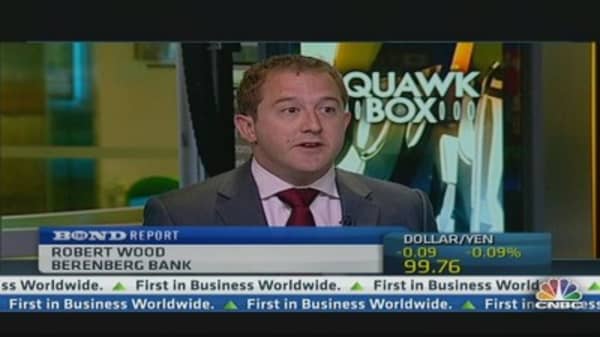June mortgage approvals were still only 68.7 percent of the average monthly level of 54,233 seen since 1997, Archer said.
"Nevertheless, there is a very real and growing possibility that with market activity now seemingly gaining appreciable momentum, house prices could surprise on the upside over the second half of 2013, especially as a shortage of new properties for sale is currently providing support to house prices in some areas, notably London and the South East," he added.
(Read more: UK house prices leap to record high)
Archer's comments come as a report warned that a bubble in "Prime Central London" (PCL) property was growing. The typical property price in prime central London was now more than 6.5-times the national average and has risen by almost 20 percent since 2012, according to research by economists at Fathom Consulting and property investment firm Development Securities.
"As a place in which to live, Prime Central London is unique. But of course that does not make it immune from the laws of supply and demand," Michael Marx, chief executive of Development Securities, who commissioned the report, said.
"With the average Prime Central London property now a little under £1.5 million, valuations have never been more stretched. We are less confident now than we were back in May 2012 that Prime Central London prices are sustainable," he added.
(Read more: UK property price rises stoke fears of new bubble)
According to the report, a disorderly unwinding of the U.S. quantitative easing program could knock around 20 percent off London's most expensive properties which were seen as a safe-haven asset during an era of central bank monetary stimulus.
The U.K. government has also made efforts to protect its housing industry with schemes such as "Funding for Lending" aiming to encourage bank lending to the sector.
On Tuesday, U.K. finance minister George Osborne announced the launch of the second part of a £12 billion ($18.3 billion) "Help to Buy" scheme where the U.K. government guarantees part of a home-buyer's mortgage on properties worth up to £600,000 ($918,000).
The first part of the scheme helped first time homebuyers access equity loans, while the second part will help buyers of existing homes. Osborne said the scheme would make mortgages easier to access, causing demand to rise and homebuilders to react by building more homes.
But the Home Owners Alliance warned that the scheme would drive up housing prices and could "cause a bubble and encourage people to take on huge mortgages."
"The world must have gone mad for us to now be discussing endless taxpayer guarantees for mortgages," Graeme Leach, the chief economist at the Institute of Directors, said on Tuesday.
"The housing market needs help to supply, not help to buy and the extension of this scheme is very dangerous," he said. "Instead of trying to pump-up prices, the Government should focus on relaxing planning laws and reducing Local Authority charges on developers to make it easier to build more homes."





